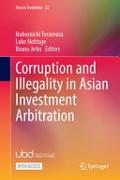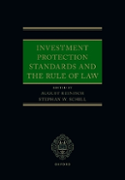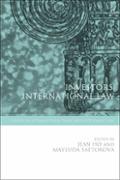This research project relates to international investment law. International investment law regulates the treatment by States of foreign investments within their territories. Because its obligations only apply to States, international investment law is asymmetrical; in other words, there is no regulation of the conduct of foreign investors.
The goal of this research project is to investigate whether, within international investment law, the regulation of investors’ misconduct is legal and desirable. In the first place, this investigation covers initiatives in the substantive law of international investment law, particularly by inclusion of ‘investor obligations’ in investment treaties. The validity of investor obligations is in question, noting that treaty obligations usually bind because their objects have consented to them. A second focal point of investigation is the various proposed procedural innovations that would facilitate claims by States (and their local subjects) against foreign investors in international adjudication.
This research project produced a number of publications, which are documented under ‘Publications’ below. Other research outputs included various presentations of this scholarship at conferences and workshops. Finally, one publication was presented at the 45th session of UNCITRAL Working Group III.
Coming to the scientific findings of this research project, it was determined that investor obligations in investment treaties are valid, subject to the proviso that the host State (in creating them) is acting within the bounds of its constitutional competence. Regarding the research on creating new procedural infrastructure for host States and their local subjects to sue foreign investors, there are reform options that could be implemented for this purpose. But the fact that they ‘could be’ implemented does not imply that they ‘should be’. One achievement of this scholarship was to identify the various factors that States should consider when evaluating whether to create this new procedural infrastructure.





